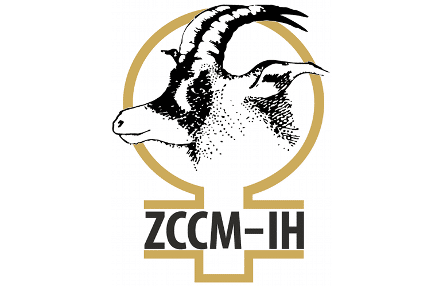
The revised 28.8% energy tariffs for mining companies in Zambia-Africa’s rich copper producer has taken a new twist with the chamber of mines contesting in the courts of law, that decision by the energy regulatory body effected on 2nd April this year.
The courts have since granted a judicial review to the chamber of mines of Zambia on the matter to allow for hearing and determination of the matter.
The chamber, a consortium of mining companies operating in the Southern African state, argue in their affidavit that the decision by the Energy Regulation Board(ERB) to revise the energy tariffs was incorrect arguing it was not the correct body to have done so, the Post newspaper reported citing an affidavit filed in the Lusaka High Court.
Chamber of mines executive officer, Maureen Jangulo, in her application made to seek judicial review of the decision before the court’s principal registry, on behalf of the mining companies, its members, contends that the ERB was not authorize by the Energy Regulation Act, Electricity Act or any other law to vary tariffs in the applicants’ Power Supply Agreements (PSAs).
The chamber contends further that the applicants in the matter stated that, among other mines, Lumwana Mining Company, Kansanshi Mining, Lubambe Copper Mines, Mopani Copper Mines, Chibuluma Mines, NFC Africa Mining and Chambishi Metals Plc, were companies incorporated under the companies Act and whose principle business was mining.
According to the provisions of section 8 of the electricity Act, then the respondents and the supplier of the electricity were required to notify and offer applicants a hearing on the proposed tariff adjustment before the decision of vary the electricity tariff was made.
Both affected parties were not afforded a chance to have a hearing on the matter before the decision to review tariffs was made, Jangulo argued in her affidavit.
Additionally, the chamber acting on behalf of the mining companies-its members argues that Lumwana Mine and Kansanshi Mines entered into PSAs with Zesco limited while the other copperbelt companies had agreements with the Copperbelt Energy Corporation (CEC) for the supply of the electricity for their respective mining operations.
According to the PSAs signed by the mines with Zesco, Jangulo contends, Lumwana Mining company and Kansanshi Mining Plc, electricity tariffs to be paid by the two applicants were supposed to be adjusted by indexation or in reference to the terms agreed by the parties either through tariff reviews to be held by the parties every three to five years, or through the terms agreed to by the parties pursuant to an industry wide tariff adjustment, the affidavit reads in part as cited.
The Lusaka High Court has since granted the chamber of mines judicial review against the ERB’s decision to adjust the tariffs for foreign mining companies operating in the country.
High Court Isaac Chali granted leave to the chamber of mines to commence judicial review and set 28th July this year to commence hearing.
On 2nd April, the ERB announced a 28.8% power increase for mining companies, a move which the mining companies contended had come amid low copper prices on the international metal market.
Chambers of Mines of Zambia Chief Executive Officer, Jangulo had earlier argued that the ERB power tariff increases were done unilaterally.
The chamber had then argued further that while the mines understand the need for utilities to earn a fair return on investment to be able to efficiently and sustainably operate and maintain the infrastructure, cognizance must be taken of the long-term nature of the mining business.
Due to the long-term nature of mining investments, corresponding long-term planning from a policy and regulatory perspective is necessary to attract and retain investment in this sector.
She pointed out the fact that power supply to mining companies is governed by commercial contracts entered into mutually by ZESCO and respective companies.
This was taking into account the full commercial circumstances prevailing at the time of entering into such contracts, and anticipated to occur over the life of the contract.
Jangulo had added that the mining sector had agreed to extra ordinary tariff increases of 35% in 2008 and 30% in 2011 outside existing contracts on the understanding that investments would be made to improve the quality of power being supplied to the industry.
